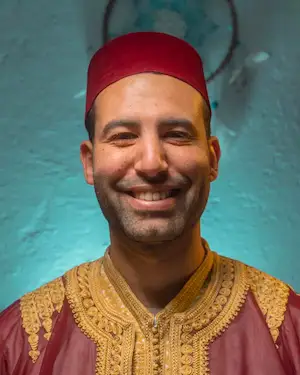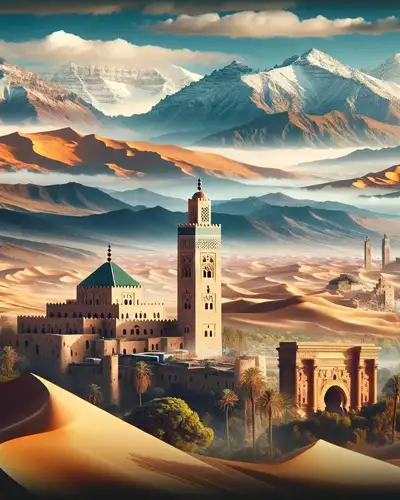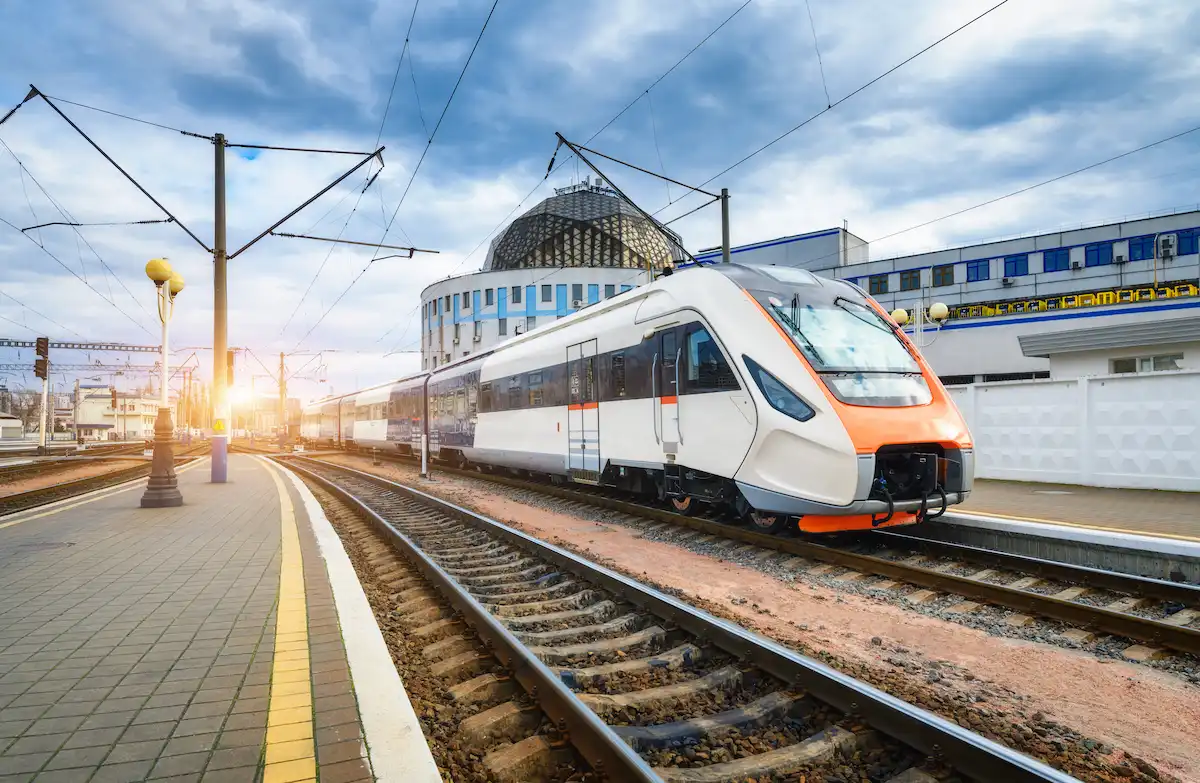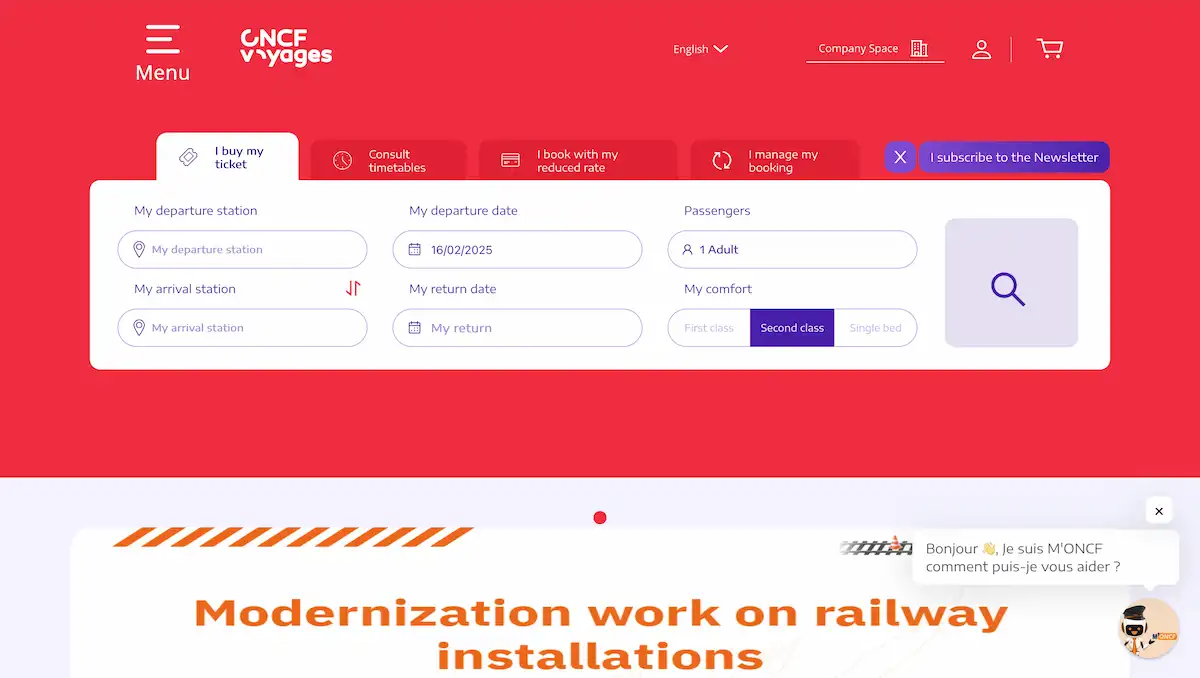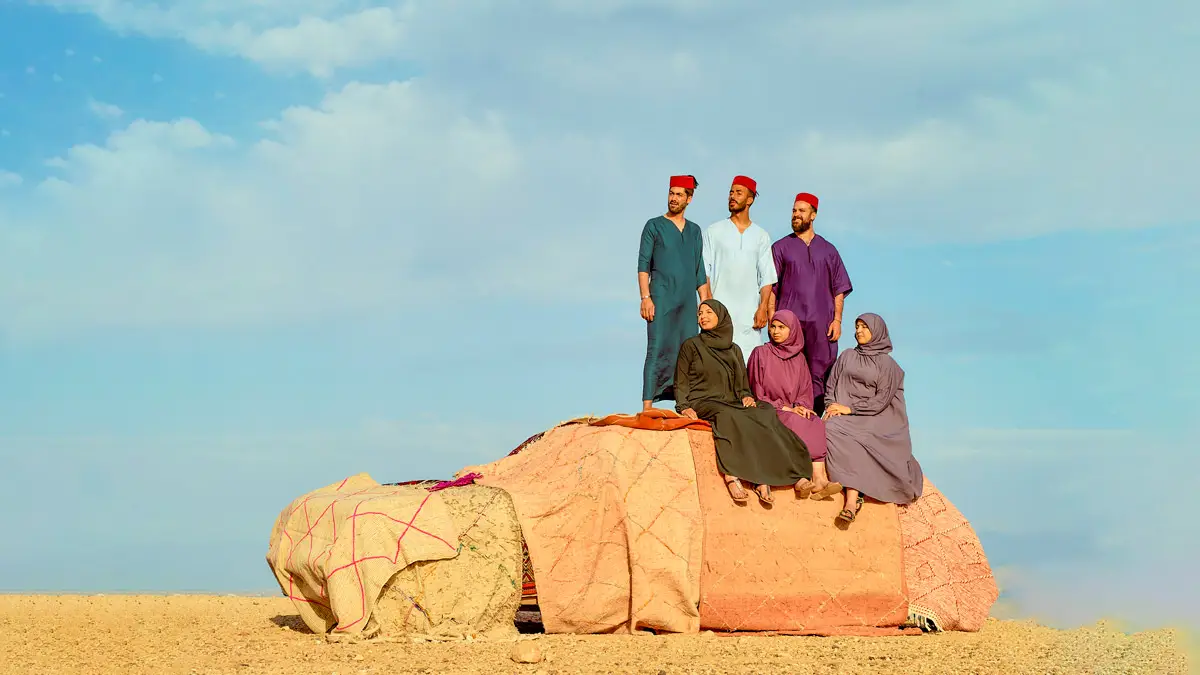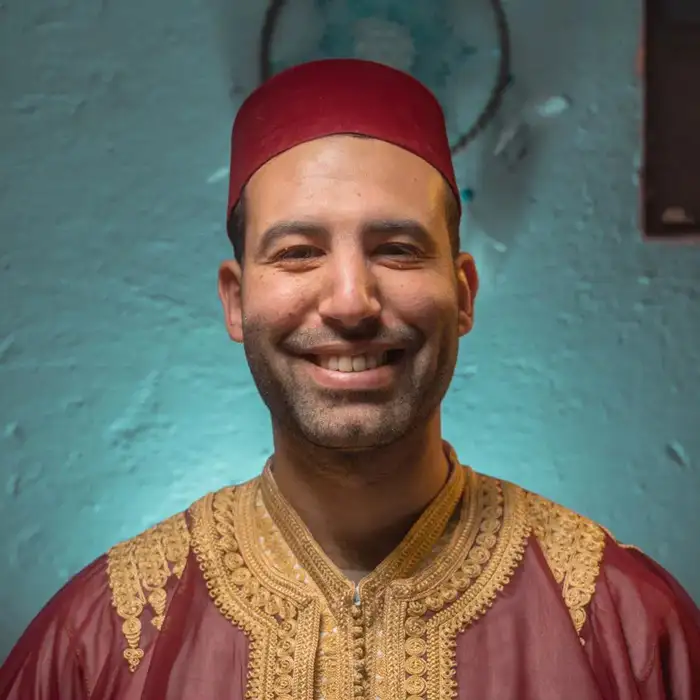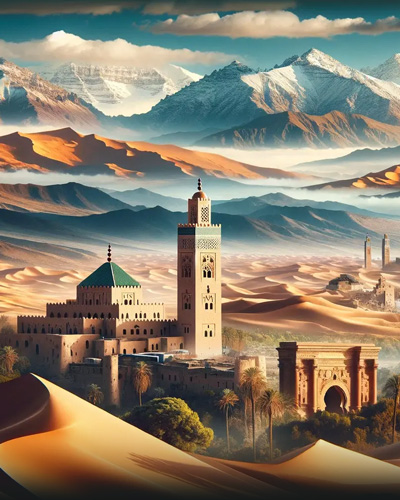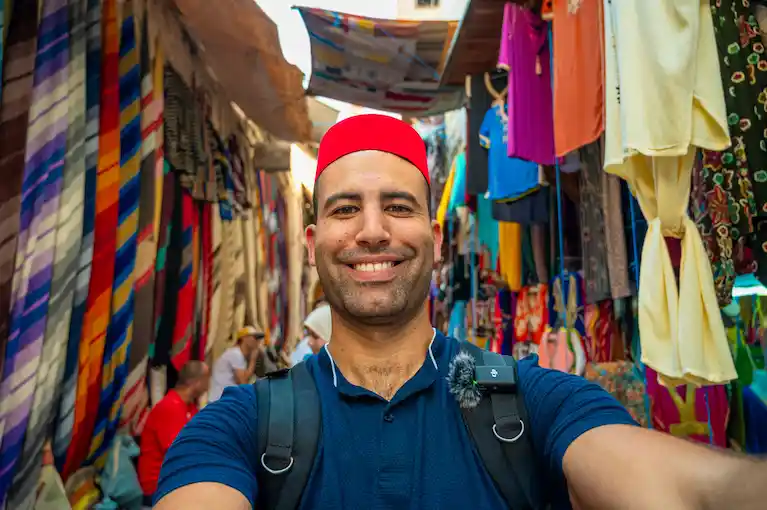Train Travel in Morocco – It’s So Easy
Train travel in Morocco is one of the easiest and most affordable ways to get around. The country has a well-connected rail system that links major cities, which makes it a reliable option for both tourists and locals.
As someone who has lived in Morocco and traveled extensively by train, I’ll explain everything you need to know, from ticket prices and routes to cultural etiquette and alternative transport options.
Train Network in Morocco
Morocco’s train system is operated by ONCF (Office National des Chemins de Fer). The network connects the country’s major cities, including Casablanca, Rabat, Fez, Marrakech, Tangier, and Oujda. The Al Boraq high-speed train runs between Tangier and Casablanca, making this route significantly faster than regular trains (2h instead of 4h on regular trains).
Main Train Routes
- Tangier – Casablanca (via Al Boraq high-speed train)
- Casablanca – Marrakech
- Rabat – Fez
- Marrakech – Fez (requires a transfer to Casablanca or Rabat)
- Casablanca – Oujda (the longest route, crossing different landscapes)
For those wanting to travel beyond these cities, regional train services connect some smaller towns, but they are slower and less frequent.
Train Classes
Moroccan trains generally offer two classes:
- First Class: Reserved seats, air-conditioned compartments, and fewer passengers. Best for long trips.
- Second Class: Cheaper but can be crowded, especially during peak travel times. Seats are not reserved.
Ticket Price
Ticket prices are generally affordable, and vary slightly between first and second class. Also, these prices may vary, for the accurate and updated price, please refer to the ONCF ticket website.
- Tangier – Casablanca (Al Boraq): First Class ~$30 | Second Class ~$20
- Casablanca – Marrakech: First Class ~$15 | Second Class ~$10
- Rabat – Fez: First Class ~$12 | Second Class ~$7
- Marrakech – Fez: First Class ~$25 | Second Class ~$15
Discounts are available for students, children, and round-trip purchases.
How to Buy Train Tickets in Morocco
Train tickets can be bought in several ways:
- At the station: Ticket offices and machines are available in major train stations.
- Online via ONCF’s website: Allows seat selection and avoids long queues.
- On the train: Some routes allow passengers to buy tickets directly from the conductor, but this is not recommended as seats may not be available.
Advance booking is recommended for Al Boraq high-speed trains since seats fill up quickly.
What to Expect at Moroccan Train Stations
Larger stations in cities like Casablanca Voyageurs, Rabat Ville, Marrakech, and Fez have modern amenities like food stalls, waiting areas, and ATMs. Smaller stations are more basic but still functional.
Security checks are present at larger stations but are not as strict as at airports. It’s best to arrive at least 15 minutes before departure, especially during busy hours.
Onboard Experience
- Seating: First-class passengers have assigned seats, while second-class passengers must find available spots.
- Food & Drinks: Vendors sell snacks and drinks onboard, but bringing your food is common.
- Restrooms: Available but not always well maintained, so carrying tissues and hand sanitizer is a good idea.
- Safety & Luggage: Trains are generally safe, but keeping an eye on luggage is advised, especially in second class.
Cultural Etiquette & Safety Tips
- Personal Space: Trains can be crowded, and locals often chat with tourists. A simple greeting is polite.
- Dress Modestly: Morocco is a conservative country, so dressing appropriately avoids unnecessary attention.
- Security: Pickpocketing is rare on trains but can happen at busy stations.
- Women Traveling Alone: Women travelers may feel more comfortable in first-class.
Alternative Transport Options
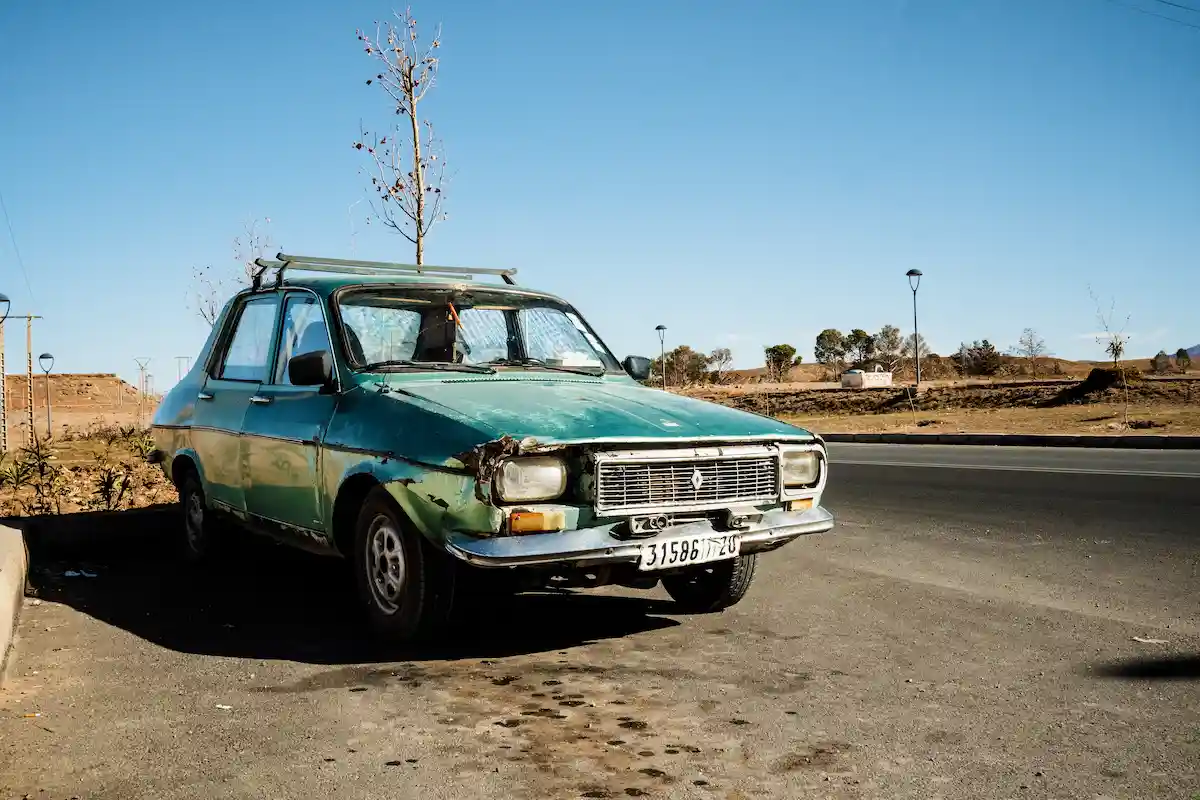
For routes not covered by trains or for those who prefer flexibility, other transportation options include:
- CTM & Supratours Buses: Comfortable, air-conditioned buses serving small towns and rural areas.
- Grand Taxis: Shared taxis operating between cities. They are more expensive than trains but faster on short routes.
- Car Rentals: Good for exploring remote areas, but city driving can be chaotic.
Scenic Train Journeys
Some train routes offer beautiful landscapes:
- Casablanca to Marrakech: Passes through vast open plains.
- Casablanca to Tangier: Rides beside the atlantic ocean all the way.
- Fez to Oujda: Crosses Morocco’s less-visited eastern regions.
- The Oriental Desert Express: A private charter train from Oujda to Bouarfa, crossing semi-desert areas and abandoned colonial stations.
Future Rail Projects
Morocco is expanding its rail network, with plans to add 2,300 miles of railway by 2040. Future plans include high-speed connections to Agadir and Essaouira, which are currently not served by trains.
Source: Plan Rail MAroc
Morocco Train Limitations
Some of Morocco’s most famous travel destinations are not covered by the train network, meaning you’ll need to either book a tour or have your own vehicle to reach them. For places like the Sahara Desert, Chefchaouen, and the Atlas Mountains, relying on public transport can be challenging. To make travel easier, we offer high-quality private tours, including Marrakech to the Sahara Desert, Fez to the Sahara Desert, and Tangier to the desert through Chefchaouen and Meknes. These tours provide comfortable transportation, knowledgeable guides, great accomodation, and a peacefull way to explore Morocco.
Is it a Good idea to train travel in Morocco?
Traveling by train in Morocco is one of the easiest ways to explore the country. It’s affordable, efficient, and connects the major cities. Whether you take the high-speed Al Boraq train or a regular train through the countryside, the rail system in Morocco is a reliable experience. For a well-planned trip, check out our guides on the 10 Best Places to Visit in Morocco, a One-Week Travel Itinerary in Morocco, and a Travel Cost Breakdown to help you budget your journey.
If you need more information or just want to chat about Morocco, please feel free to contact me through Whatsapp or email, I will be more than happy to assist you.
Thank you for reading, see you in the next port!

